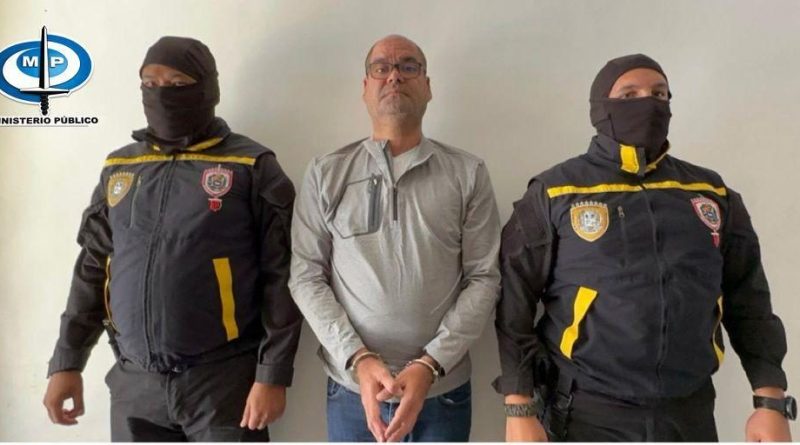The Attorney General of the Republic, Tarek William Saab, announced the arrest of the former Minister of Petroleum and former President of Petróleos de Venezuela (PDVSA), Tareck El Aissami, as well as Simón Alejandro Zerpa, former Minister of Economy and Finance and former President of Fonden, and of businessman Samark López for his connection to the corruption plot in the PDVSA-Cripto case.
He made the announcement in statements this Tuesday in Caracas when announcing new elements regarding the second phase of the PDVSA-Cripto investigation.
The Public Prosecutor’s Office (MP) charged the detainees with the crimes of treason, appropriation or distraction of public assets, boasting or taking advantage of relationships or influences, money laundering and association.
Saab recalled that in this corruption plot that was revealed in March 2023, a network of officials was detected who also operated in the National Superintendence of Crypto Assets (Sunacrip) and in the Venezuelan Corporation of Guayana (CVG) with the purpose of carrying out illegal oil operations.
In this sense, he said that they assigned crude oil loads to Sunacrip and to individuals «without any type of administrative control or guarantees, failing to comply with the contracting regulations of Petróleos de Venezuela and with the corresponding payments to PDVSA.»
To do this, they used “a conglomerate of commercial companies to legitimize the money obtained from said sales, through the acquisition of crypto assets, personal and real estate, and investments in the construction and real estate sector.”
He mentioned that the first arrested last year in this case were Antonio Pérez Suárez, vice president of Commerce and Supply of PDVSA; Joselit Ramírez Camacho, national superintendent of Sunacrip, and Hugbel Roa, former deputy to the National Assembly:
“54 people have been accused in this case, all arrested, charged and accused. After that first stage, the investigation remained open and the investigation proceedings continued, while 17 arrest warrants remained pending,” he explained.
He added that five of the detainees took advantage of the denunciation mechanism and became protected witnesses, which allowed the Public Ministry to advance new lines of investigation and identify the leaders of the criminal structure.
One of the informers said that “with the excuse of the sanctions and the blockade, El Aissami, through his trusted men, Joselit Ramírez and Hugbel Roa, directly assigned crude oil ships, and then mobilized the proceeds from its commercialization without leaving a trace”.
To carry out the operations, Saab pointed out, “they used briefcase companies and cryptocurrency payments abroad to manage that money as they pleased, without allowing the Central Bank of Venezuela to have access to it; In this way they controlled access to foreign currency in the national market, which allowed them to speculate with the exchange market.”
“One of the protected witnesses explains that he became a trusted businessman of Tareck El Aissami, by virtue of his friendship with citizen Jesús Méndez who is being prosecuted. And he also related him to Hugbel Roa and Pedro Maldonado. This witness explained that both Méndez, Roa and Maldonado demanded that he pay cash commissions to guarantee access to business with the Pdvsa and GVG companies,” he noted.
The attorney general revealed that “these payments were intended for work in El Aissami’s homes and offices, for Roa’s campaigns for deputy or to aspire to a governorship; and in the case of Pedro Maldonado, for payments of an alleged special payroll that reached millions of dollars.”
The businessman and partner of El Aissami, Samark López, also intervened in this plot, who “acted through a digital bank, as a financial operator that provided money in digital and cash to support all that mafia.”
